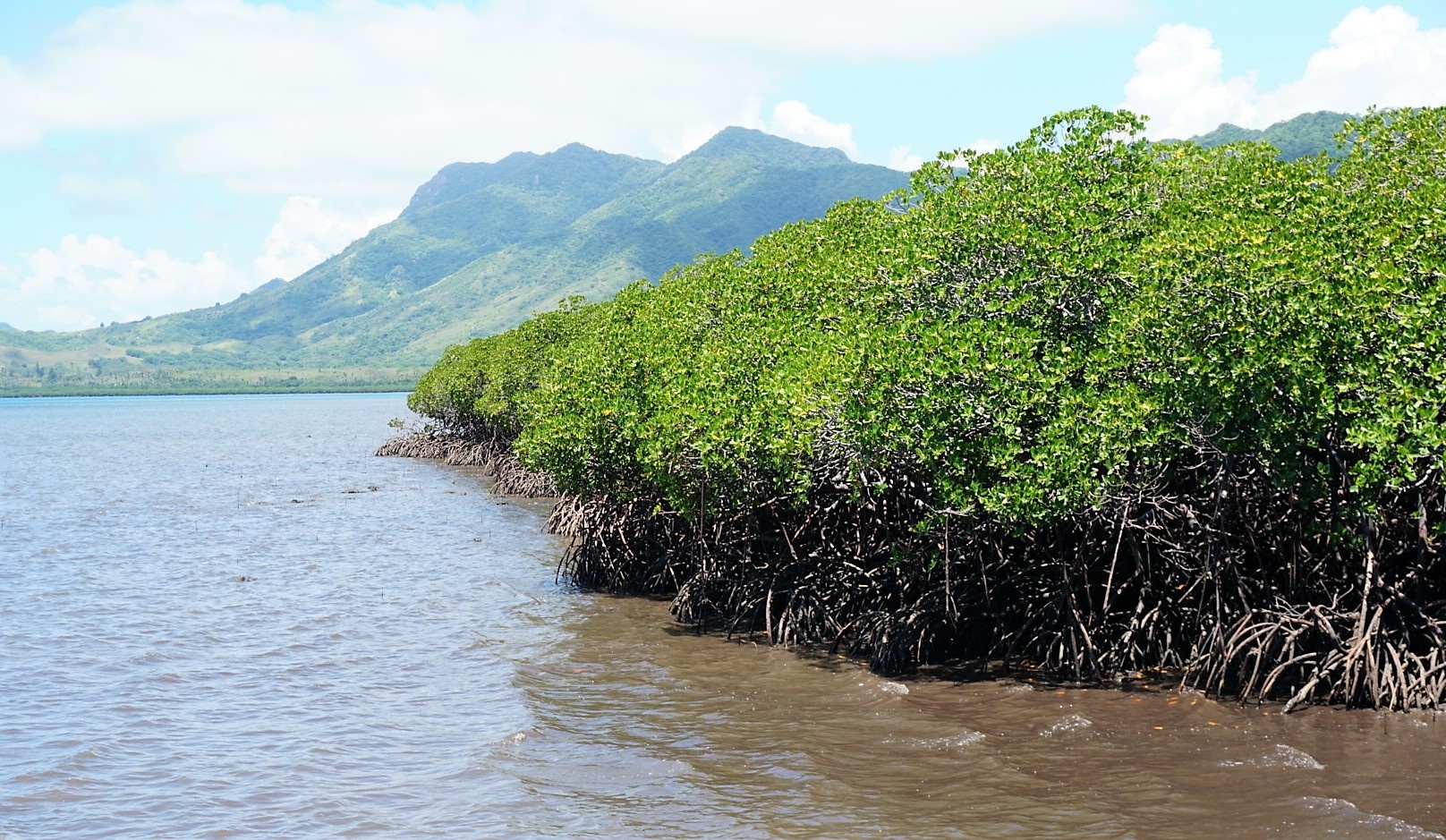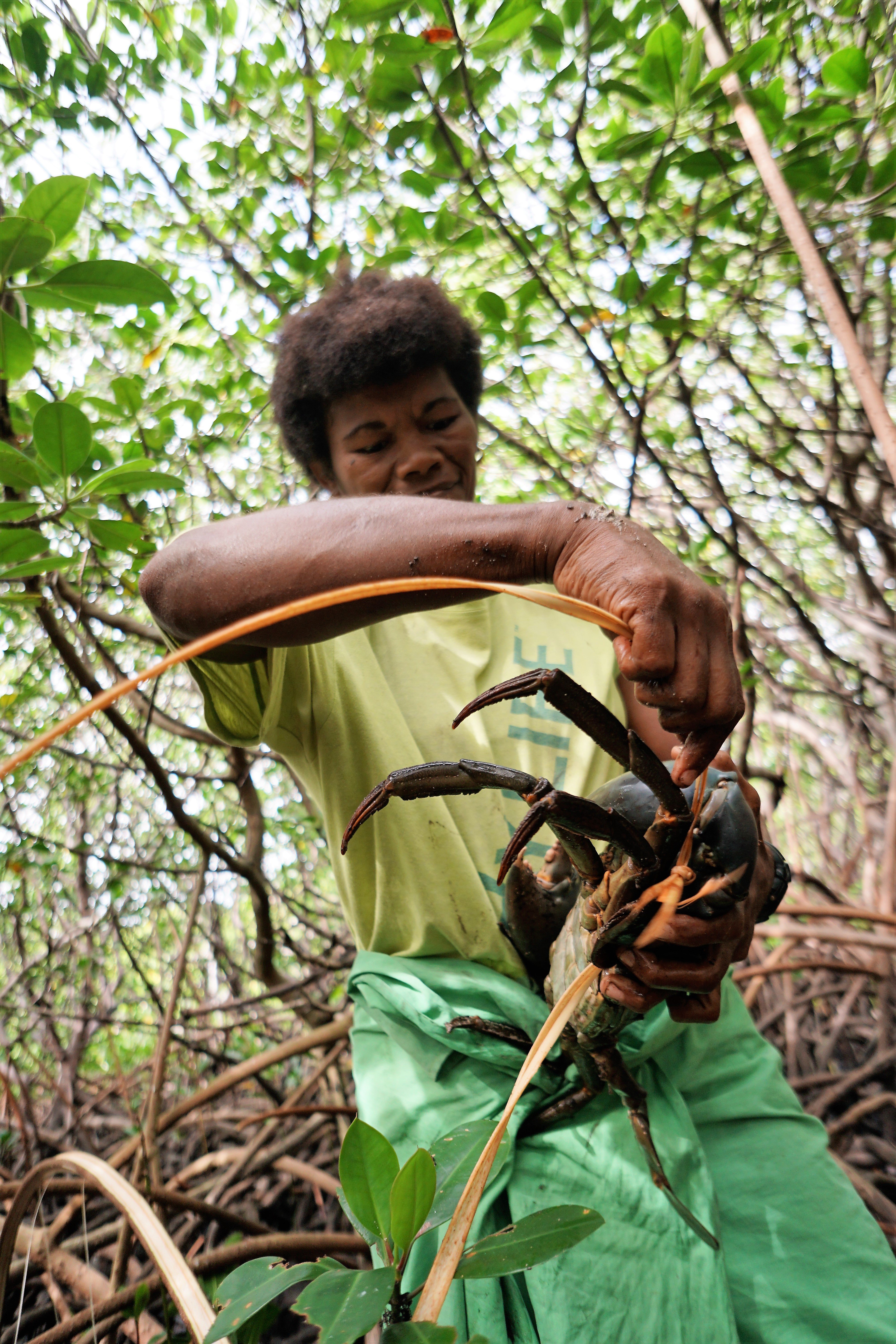In a significant case law development relating to the illegal destruction of mangrove, coral reef and foreshore areas, the High Court of Fiji has upheld the importance of Environmental Impact Assessments (EIAs) before development in mangrove and foreshore areas.
This case relates to the Fiji company Freesoul Real Estate Development (Fiji) PTE Limited (Freesoul) that was found guilty by Fiji's criminal court of illegal development contrary to the Environment Management Act, 2005 (EMA). For more information on the criminal prosecution of Freesoul click here
Now, the High Court (Mr. Justice Amaratunga) has determined that a criminal prosecution for breach of Fiji's environmental laws - does not stop - a separate civil claim for damages under the Environment Management Act, 2005. In other words any person who breaches Fiji's environmental laws potentially exposes themselves to criminal as well as civil liability. The High Court Judgment highlights the importance of healthy mangroves and coastal ecosystems in Fiji's national interest, makes the connection between the health of Fiji's environment and its adaptation to the effects of climate change, and is another significant contribution to Fiji's growing environmental law jurisprudence.

On 9 March 2023, High Court Judge, Mr Justice Amaratunga provided a Judgment in Civil Action No. 257 of 2018 that represents another valuable addition to Fiji's expanding environmental law jurisprudence.
The background to this case involves Malolo Island and the illegal destruction of mangroves and foreshore1 areas by the developer Freesoul. In 2018, the Plaintiffs in this civil action (Ratu Jona Joseva and Woody Jack) brought a civil action seeking civil court orders (by injunction) to stop the further destruction of their land.
In the interim, the Director of Public Prosecutions (DPP) assisted by Fiji's Department of Environment prosecuted Freesoul in accordance with the Environment Management Act, 2005 for illegal development without an EIA contrary to EMA. Freesoul was found guilty and convicted by the High Court and fined FJ$1m.
This separate Civil Court Judgment of Mr Justice Amaratunga means that Fiji's High Court has rejected an attempt by Freesoul to dissolve the civil orders. This means that the further destruction of the mangroves, foreshore, coral and seabed cannot take place, and further destruction is stopped until the full hearing of this civil claim.
This Judgment is of particular importance because:
1. The Judgment finds that a civil case and claim for compensation for environmental damage is separate from any criminal prosecution under EMA. This means that the Fiji High Court has held that Freesoul can also be sued in the High Court for damages in accordance with EMA - as well as being fined for its criminal actions. The Learned Judge provided: "compensation paid under Section 47(2) of the Act is not an impediment or a bar for civil suits, but a complementary provision".
2. The Judgment provides interpretation of section 50 of EMA showing that a claimant can claim damages for economic loss caused by Freesoul's actions and that this economic loss may include "health related problems". This aligns with the interpretation of Fiji's Court of Appeal and Supreme Court in the claim against Total (Fiji) Limited relating to pollution - for more information about that environmental law case please see: here
3. The Judgment upholds the principle that development that will cause significant environmental harm must have an approved EIA under Fiji law or that development is illegal and the developer may be exposed to both criminal and civil liability.
There are a number of other points that the learned High Court Judge makes in this Judgment that are also significant for Fiji's environmental law jurisprudence. This includes the finding that claims for compensation under section 47 of EMA are not subject to time limitation like civil torts. At various points in the Judgment the learned Judge points out the failures by the developer to comply with environmental law and orders in relation to its conduct.
In addition, paragraphs 76 to 78 of the Judgment Mr. Justice Amaratunga notes the significance of coastal ecosystems, mangroves and their importance to climate change adaptation for Fiji. Given the importance of Fiji's coastal ecosystems to Fiji, these paragraphs are worth repeating in full.
76. It is clear that in an action where environmental destruction had happened to the magnitude of criminal prosecution and also conviction the assessment of damage to environmental is irreparable by the nature of development activities of fourth Defendant which had destroyed costal ecosystem. In this instance from the evidence before me at this stage fourth Defendant had cleared a mature mangrove forest area, without EIA.
77. According to World Wildlife Fund (WWF)', mangroves plays a vital part in combatting 'Climate Change'. Accordingly,
"There are more than 60 different species of mangrove tree, all specialized to grow along waterlogged coastlines in tropical and sub-tropical regions. Despite being relatively unknown, they are an incredible group of plants. Not only do they have a unique ability to thrive in saltwater environments, but their strong and complex root systems also protect coastal communities and landscapes from extreme weather events, like hurricanes.
Mangroves are regularly referred to as a "nature-based solution"-a term often used in reference to tackling the climate crisis. A nature-based solution leverages the strengths that already exist in nature to mitigate or adapt to the impacts of change. One of mangroves' biggest strengths lies in their ability to capture and store carbon. The muddy soil that mangroves live in is extremely carbon-rich and over time the mangroves help to not only add to this store of soil by capturing sediment but hold it--and the carbon-in place. The amount of carbon stored beneath these trees is estimated to be up to four times greater than that stored by other tropical forests, making these coastal forests extremely valuable in the fight against climate change."
78. Fiji is a frontline island that is vulnerable to 'Climate Change' and also had taken initiatives to combat this through legislative measures such as of Climate Change Act 2021(yet to commence)2 and other methods to mitigate adverse effects of climate change. So the destruction of mangrove and losses and damage to the environment is irreparable to such a vulnerable state. In such a scenario, fourth Defendant cannot rely on adequacy of Plaintiffs' undertaking as to damages to dissolve orders granted on 9.4.2019 as their actions had resulted irreparable loss, and rehabilitation and or restoration is a much essential.
Conclusion
Fiji's environmental law jurisprudence continues to develop. This is another case law precedent that demonstrates Fiji's Courts will apply Fiji's environmental laws and make polluters pay. This is in line with international law, and Fiji's well publicised commitments to respond to the effects of climate change.
It is therefore important that companies or persons undertaking development in Fiji - are aware and take seriously - the provisions of Fiji's Environment Management Act and common law principles. As this and other recent cases show including the Supreme Court Judgment against Total Fiji - internationally recognised principles including the requirement for EIAs and the legal principle "polluter pays" are in full force in Fiji's laws and will be upheld by Fiji's Courts.
If anyone would like a copy of this case, please email: james@sas.com.fj


Healthy mangroves and healthy coastal ecosystems are vital for Fiji's people

1. Under Fiji law, foreshore areas are subject to different treatment from land law and include customary law rights reserved to iTaukei landowing units known as Yavusa.
Please note: This legal bulletin is provided for general information purposes only and it is not, and nor is it intended to be legal advice, and it should not be relied upon as such.



